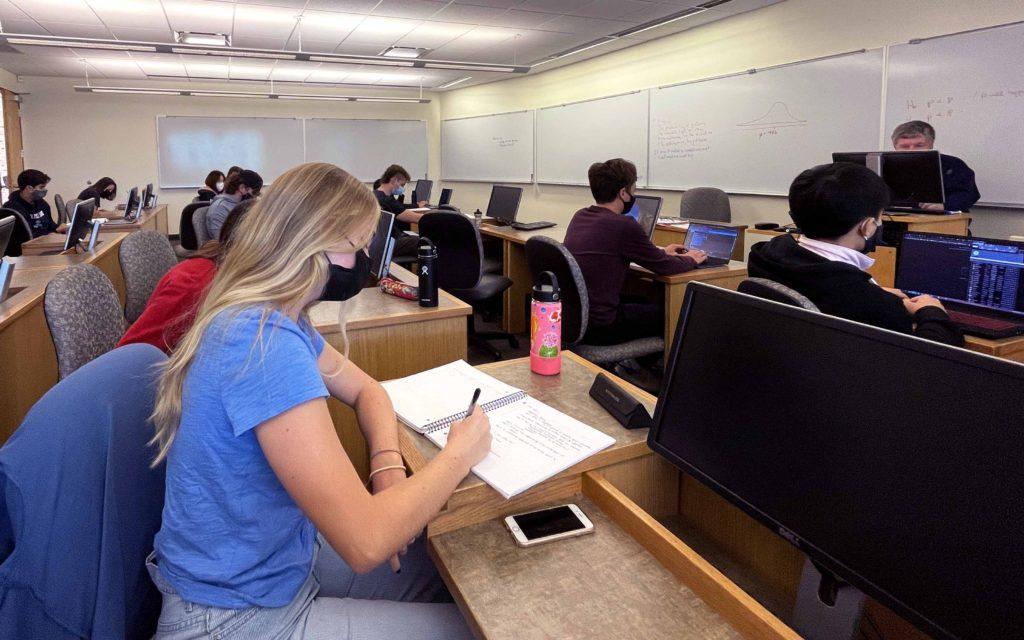Having more tenured professors may seem like a mundane fact of no importance to students; however, the College’s plan to increase tenure-line positions may significantly impact students’ academic experience for the better. During Raynard Kingston’s presidency, Grinnell College created a cap on the number of tenure-line positions, Now, under the new administration, the cap has been lifted to expand faculty and create a new curriculum by increasing the number of tenure-line positions.
Grinnell faculty is composed of three types of professors. The first are tenured professors, who can oversee tutorials, advise students, and facilitate Mentored Advanced Projects (MAPs). These professors are typically employed until retirement. The second group is made up of professors working towards becoming tenured. They are known as tenure-line faculty, working at Grinnell for at least seven years prior to earning tenure. The last group is composed of term faculty who come to the College short-term to fill in for faculty when they are on sabbatical, medical or any other kind of leave.
The planned expansion of tenured positions will happen in three parts. The first is what President Anne Harris describes as “deferred maintenance,” where departments that need new faculty hire new tenure-line positions. The second part is “curriculum expansion.” To ensure the College is continuing to engage in matters of global importance, new faculty will be hired as needed. The College hopes to ensure that areas of study currently missing can be fulfilled through this curricular expansion. One example of this is the College is in the process of creating a new African diaspora department. The third part is less defined but involved responding to current tenure-line faculty’s wants and needs.
“That third category is just me saying to the faculty, ‘tell me what your dreams are,’” Harris said.
Both President Harris and Dean of Curriculum and Academic Programs Tim Arner are excited about the changes.
“It’s a really significant moment for the institution that we are going to bring in a lot of new people, and it may be a catalyst for changes that maybe have been a long time coming or maybe it will help us respond to challenges that we haven’t even anticipated yet,” Arner said.
The changes may not be immediately visible, as the change may take a couple of years. However, in five to seven years, the administration hopes that the expansion will have created a dramatic change that will both alleviate faculty workload as well as enhance the overall curriculum.
“Whenever you bring in an infusion of new people it’s a chance to rethink how you’ve been doing things,” Arner said. “We are in a rapidly changing world, so the way in which we deliver our curriculum and the kinds of things that we teach, we want to make sure are serving the needs of our current students”
Harris and Arner both acknowledged the importance of students’ role in making this expansion a reality.
“I really want students to be involved, to attend job talks, to talk to the SEPC, to share with faculty how they feel about the curriculum [and] the department and be part of that hiring process. Grinnell is special in the way that it empowers students to be part of these processes, and so I hope students will take advantage and be a voice throughout these conversations because ultimately we need to hire faculty that these students are going to want to take classes with,” Arner said.
This will be a costly expansion, as the College plans to increase the faculty by 10 new tenure-line positions, but both Harris and Arner seemed confident that it will be a necessary and impactful change.
“Our curriculum is our values system, and so we have to invest in the values of knowledge,” said Harris.






























































